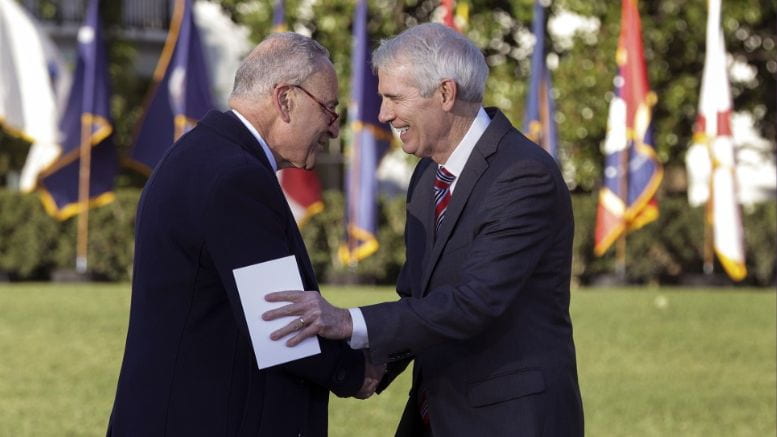Study shows the benefits of working together persist even as polarization in Congress has risen
June 2, 2023

Political scientists from Northwestern University, University of Virginia and Vanderbilt University have analyzed more than 40 years of congressional data to determine whether effective legislators more frequently adopt a bipartisan or partisan approach to reaching their policy goals.
The researchers found that for both members of the House and Senate, legislative effectiveness is heightened when members build bipartisan coalitions around the bills they sponsor. This pattern holds over time and for both majority and minority legislators.
The study is the first to take an individual- versus aggregate-level look at lawmakers’ efforts to build a coalition around their bills and how it relates to their effectiveness in achieving policy goals.
“Our argument and findings are particularly novel because they point to the value of bipartisanship even in a highly polarized Congress where partisan conflict often seems the norm,” said one of the study’s authors Laurel Harbridge-Yong.
Harbridge-Yong is an associate professor of political science and a faculty fellow of the Institute for Policy Research at Northwestern.
The study found that reciprocal relationships were key to increasing bipartisan support and legislative effectiveness. The researchers say that legislators who contribute to bipartisan coalitions by joining as a cosponsor on bills sponsored by members of the opposing party have higher rates of bipartisanship on the bills they sponsor.
“The Bipartisan Path to Effective Lawmaking” was published earlier this month in the Journal of Politics by University of Chicago Press.
Continue reading in Northwestern Now’s story “Quantifying the power of bipartisan coalitions.”

Society & Policy

Joel Mokyr wins Nobel Prize in Economic Sciences
October 13, 2025
Nobel recognizes Mokyr’s theory on sustained economic growth Joel Mokyr, the Robert H. Strotz Professor of Arts and Sciences and professor of economics and history in the Weinberg College of Arts and Sciences at Northwestern University, today (Oct….

Weinberg College faculty and graduate students recognized for excellence in teaching
July 2, 2025
Each year, the Weinberg College of Arts and Sciences and the Office of the Provost recognizes members of the College’s tenure-line and teaching-track faculty for excellence in teaching. Weinberg College in addition recognizes the contributions…

Passion for the planet: A new generation of environmental stewards starts here
May 29, 2025
Over the last two decades, the Weinberg College-housed Program in Environmental Policy and Culture (EPC) at Northwestern has embraced the humanities and social sciences and cultivated a new generation of environmental stewards. Growing up in…

The real beneficiaries of protective labor laws for women
May 20, 2025
During the first half of the 20th century, many states passed labor laws in response to the influx of women into the modern workplace. The so-called protective labor laws enacted by U.S. states restricted women’s…



